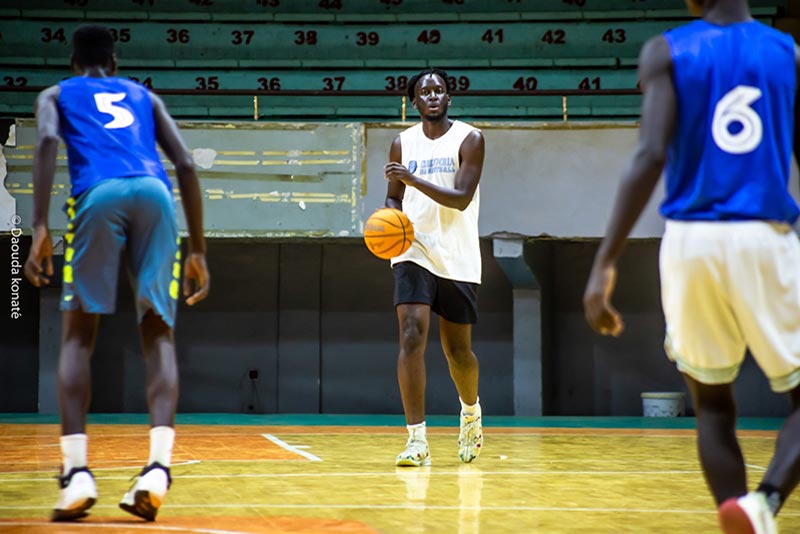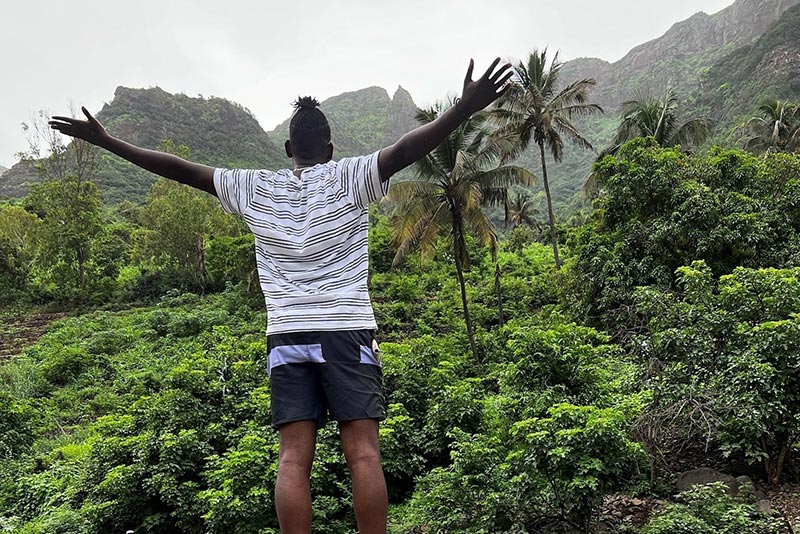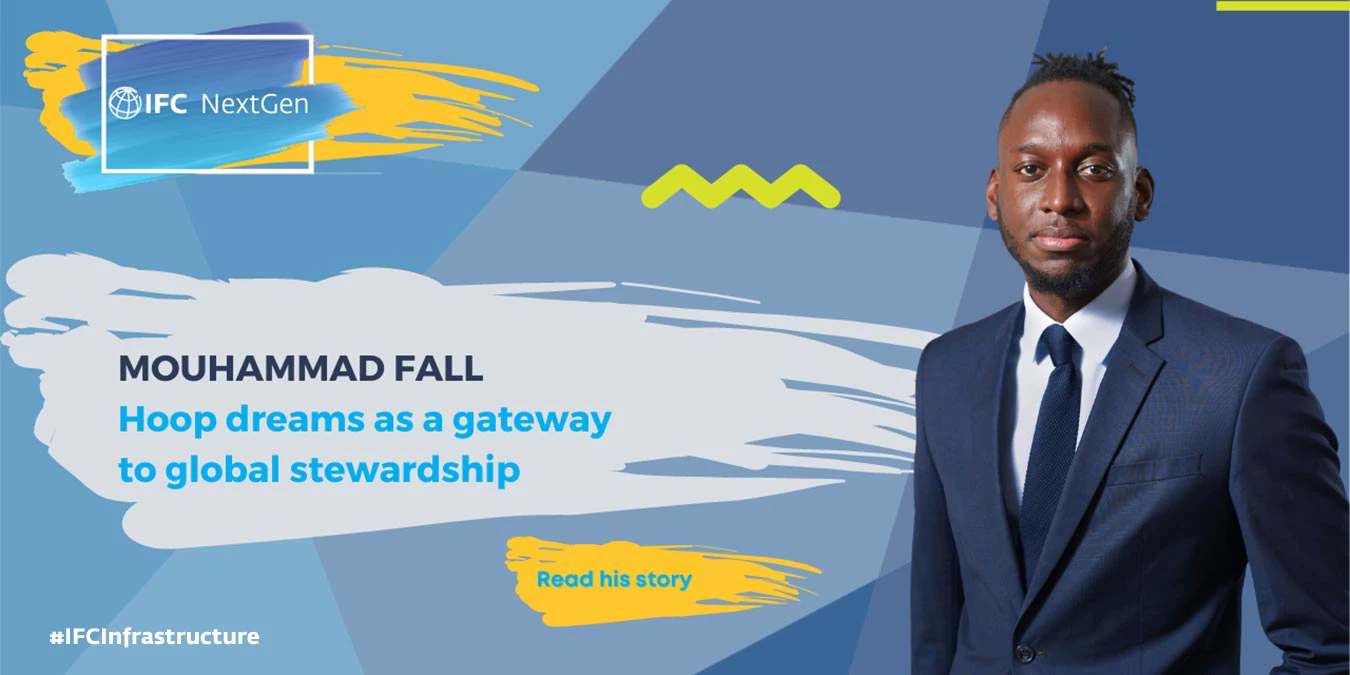Mouhammad Fall is a Dakar-based IFC investment analyst working on telecom, energy, water, and transport transactions in West and Central Africa. Here, he tells us how finding a place at IFC has deepened his knowledge about how finance drives development, given him a career with impact — and kept a part of his basketball dream alive!
Tell us a bit about your background. What were you like as a kid?
I have four sisters and two brothers, and I’m somewhat in the middle. I had a pretty normal childhood in Dakar—I loved school and basketball. It was actually basketball that gave me a taste of the globe-trotting life and a sense of the world. As a kid, my dream was to pursue a basketball career. The compromise with my parents was that they would send me to a high school in South Africa known for academics, while my hidden agenda was to have more freedom for athletics.
The school nurtured both. I got to play basketball, yes, but I also began to develop an intellectual curiosity about the BIG questions — why is there a lack of money to finance development progress? How can we solve the challenges facing my country and the world? Finding answers to these questions — and specifically understanding capital’s role in development—became a defining characteristic of my studies as I started my university career in France and then moved to New York to finish my undergraduate degree. Those questions have underpinned my professional aspirations ever since.

What did you do before landing at IFC?
I’ve had a short career but one with a lot of movement! After college, I worked in venture capital in Washington DC, where I focused on an off-grid solar debt fund—and on a music label deal. Later, I moved back to Dakar where I worked at a brokerage firm, an investment bank, an angel investor network, and in a social business to mobilize funds for the dairy value chain.
What drew you to IFC?
Impact and scale. Being able to have impact at scale was the big motivation. I think the private sector is key to development and finance is an inherent part of this equation. I wanted to play a role in helping companies owned by Africans. Working in all these different sectors, across the finance value chain, I came to see that development institutions are essential to building a viable private sector in developing economies. At the beginning of the pandemic, for example, IFC was one of the few institutions focused on continuing to roll out finance rather than just surviving. IFC’s work has great impact, by tackling finance bottlenecks and achieving scale quickly.
Since you started at IFC in August 2020, what have been some of the highlights so far?
I started at IFC in the middle of the pandemic, so everything was virtual, including my onboarding. A real highlight was my first in-person mission trip. We traveled to Tema, outside of Accra, to look at financing for LMI Ghana, a wholly Ghanaian-owned industrial zone development company that wanted to do solar rooftops and a water treatment plant. When we examined the project on paper, we were skeptical. But when we got there and saw the operation on the ground, it was quite impressive. This climate-friendly deal is now committed!
The experience drove home the importance of face-to-face interactions. There are just some things you can’t get from a Zoom call. Being there in person also allows for informal interaction outside a traditional meeting setting, which can be critical for relationship building, especially if it’s a family-run business, as this one is. In addition, you are meeting up with IFC counterparts who don’t work in the same office, and this helps so much when it comes to alignment.
Now that you’ve been in an investment analyst role for a while, what’s your sense of Africa’s most pressing infrastructure challenges?
Three things, in my opinion. The first is mobilizing the capital accrued by the growing African elite and middle class, which will be critical to advancing development. The second is improving the financial sophistication of local sponsors and moving ahead with policy reforms to enable more private sector participation. And the third is reaching the bottom of the pyramid. Nearly 600 million people are not connected to the electricity grid and internet access reaches only about one-quarter of the continent’s population, so connecting the unconnected is crucial.
How does IFC measure up when it comes to recognizing junior staff?
IFC is interesting because it is a traditional institution in terms of corporate hierarchy but it’s also ahead of its time. Junior staff are rightfully recognized. Even as a newcomer, your perspective is valued. This helps energize younger and newer staff, because it’s clear that there’s space for fresh thoughts and ideas. The analyst role is a significant opportunity to put yourself out there and impress others.

Do you still have basketball dreams?
Yes! They have changed a bit, though. Rather than aspiring to become a player, I want to support young people with similar dreams. I hope to leverage my new passion in finance to assist the sports industry, which is not immune to the infrastructure challenges facing Africa. There is a tremendous opportunity to fund sports infrastructure, to further privatize and develop sports leagues, and most importantly to mobilize the wealth accumulated by prominent athletes to fund development and boost the private sector. Sports can be a great avenue to wealth and job creation in Africa; my dreams have migrated to the nexus of sports and finance.
What else do you do to unplug and relax?
I like to spend time reconnecting and building new memories with family and friends. Also, now that the Covid-related curfew has been lifted, I really enjoy driving around and rediscovering the city at night with my favorite music on. My friends laugh because I am a tall guy, but I have a tiny Volkswagen Golf. Still, it has decent leg room and good acoustics, so that’s all I need!
Published in November 2022
